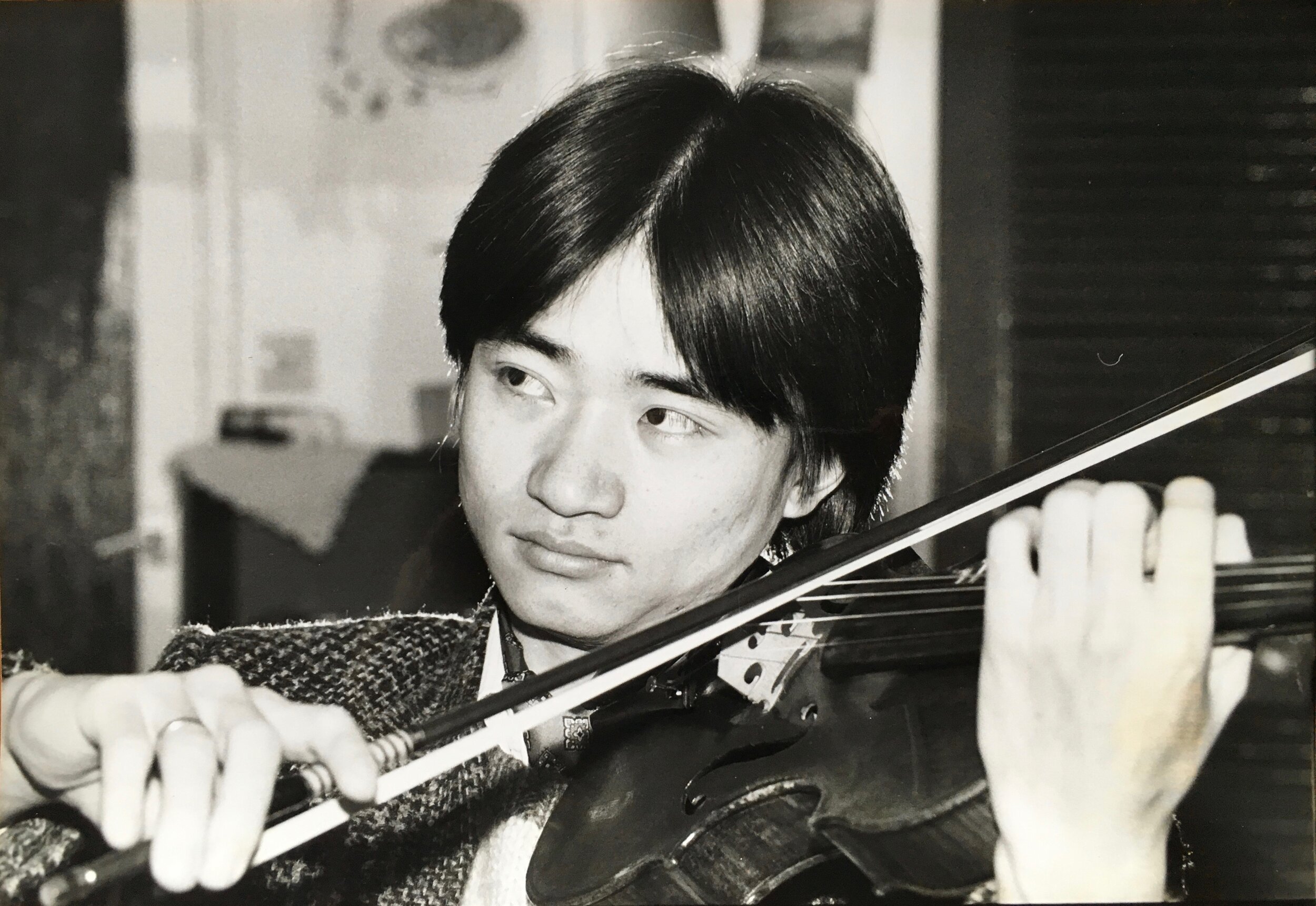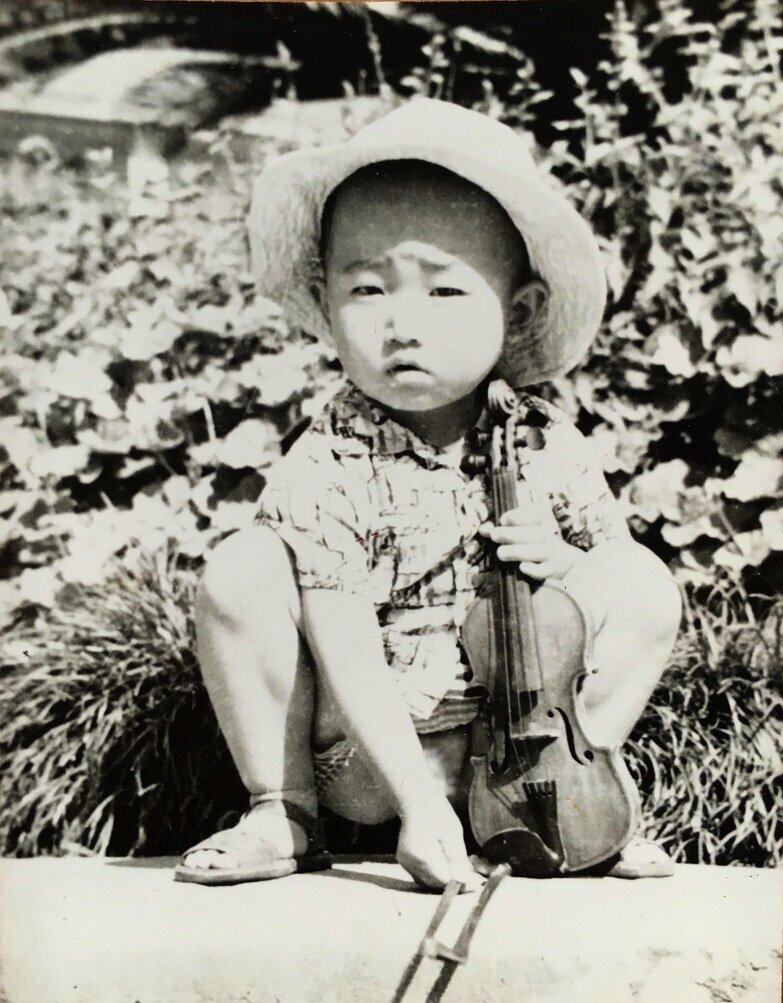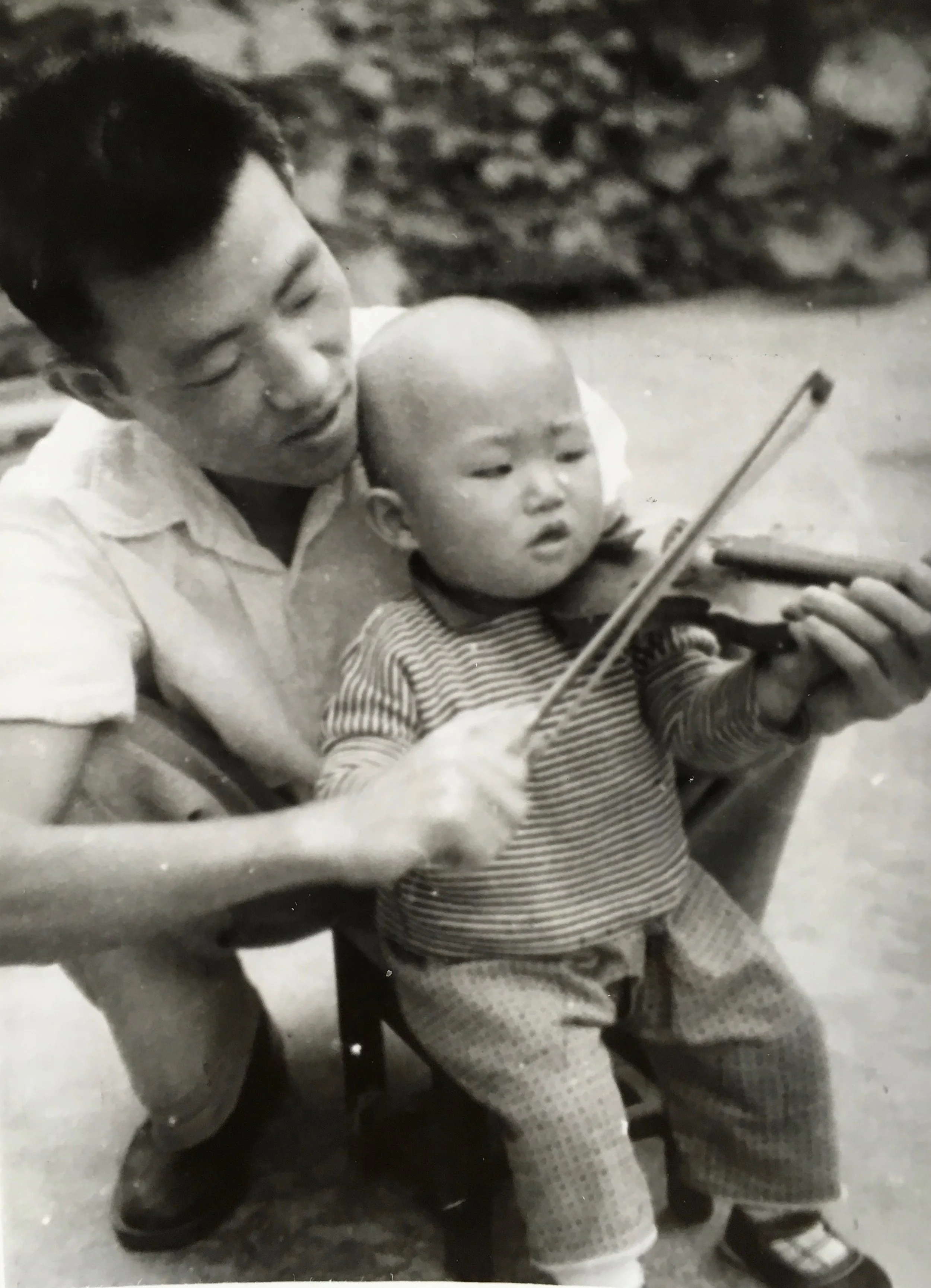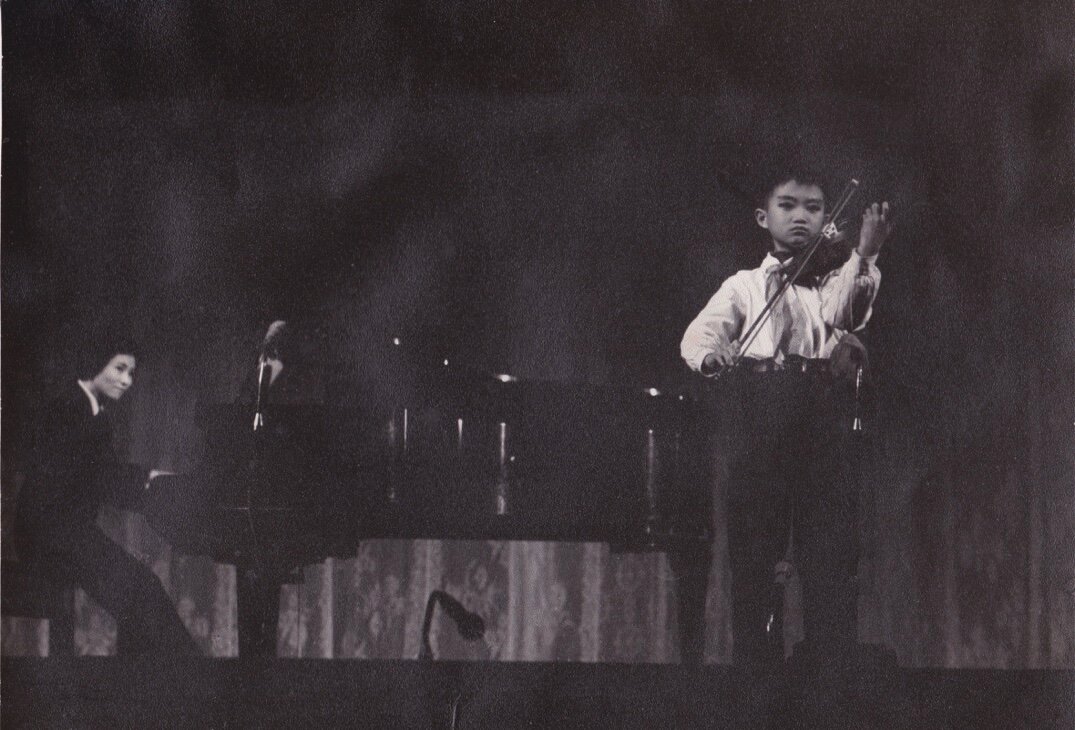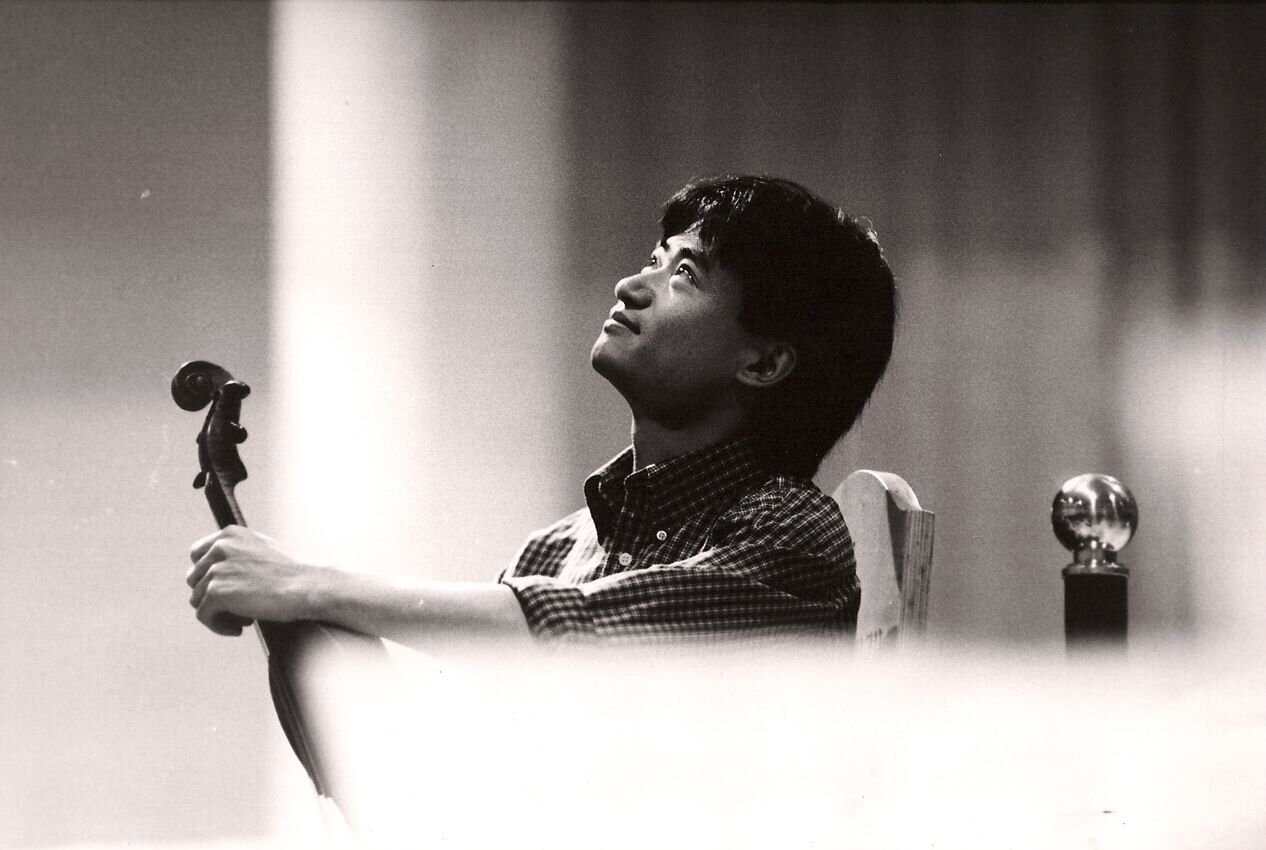
“There are a few people who can play violin well, but they don’t have a sense of style - and Hu does.”
Sir Yehudi Menuhin
Hu Kun, a child prodigy born into a musical family. Kun first started to learn the violin with his father, Prof. Hu Wei Min, in 1969 at the age of 6. He then went on the stage accompanied by his mother, Prof. Peng Shi Jun on the piano, aged 7. Kun started winning major prizes for his school in his hometown Chengdu, during the Cultural Revolution.
In 1976, at the age of 13, he went to Beijing and played the Paganini D major Concerto which earned him a nickname overnight “The little genius from Sichuan”. He was immediately offered a soloist post by China Central Radio Symphony Orchestra and China National Science Defence Committee Artist Ensemble, in which the later post became available politically. He then began to study with Prof. Lin Yao Ji. During this time, he toured all over China with the Ensemble, also winning The Exceptional Solo Performer Prize at the National Military Artists Company Award in Beijing, 1977.
Three years later, he won both the Northern Section and the National Selective Competition for the Sibelius International Violin Competition, playing on a violin tailor-made for him by Liang Guehui, commissioned by the National Defence Artist Ensemble. He was welcomed back to China as a national hero when he took the Fifth Prize at the Sibelius Competition in Helsinki in 1980, becoming the first person ever to have won an international violin competition prize in Chinese music history.
“The little genius from Sichuan”
After this, Hu Kun won media front coverage all over the country, on major television and radio programs, performing for the state’s guest US President Ronald Reagan in 1984, as well as having a documentary film made about him, “The First Winner”, which was released in China. He was awarded a Second Grade Military Medal and promoted to Battalion Commander at the age of 18. In addition, he was given an exceptional status by the Culture Minister to enter The Central Conservatory of Music in Beijing to continue his studies with Prof. Lin Yiao Ji. During this time, he also studied conducting with Prof. Xu Xin. Hu Kun then graduated as one of only two Exceptional Graduates of the Year from the Beijing Central Conservatory of Music in 1985, even though he missed a year as he had already been sent to the Menuhin Academy in Gstaad in 1984.
The same year, he was sent by the Chinese Cultural Ministry to study at the Menuhin Academy with Alberto Lysy in Gstaad, Switzerland. He became the fourth prize winner and the TV/Radio “Prix Jacques Stehman 1985” winner of the prestige Queen Elisabeth Competition in Brussels in May ‘85 (listen here). Three months later, he won the 1st prize (plus four category prizes) of the Menuhin Competition in Paris, along with the title “Grand Lauréat de la Ville de Paris” awarded to him by Madame Chirac, who then invited Kun to perform for her and her close friends at the Hotel de Ville in Paris. Guests included the likes of Madame Pompidou…
Soon after, Kun was invited to London by Lord Yehudi Menuhin, to become his protégé and only private student. The two went on to perform around the world together, recording several CDs and appearing on TV/Radio interviews together.
Exceptional Solo Performer Prize, 1977
Musical family - Prof. Hu Wei Min (left), Prof. Peng Shi Jun (centre), Zen Hu (right)
Appointed as soloist for China National Science Defence Committee Artist Ensemble, 1976
Hu Kun conducting Alberto Lysy, Geneva (1984)
Hu Kun winning the Menuhin Competition, Paris (1985)
Madame Chirac and Madame Pompidou - Hôtel de Ville, Paris (1985)
Hu Kun awarded the title “Grand Lauréat de la Ville de Paris” (1985)
Hôtel de Ville, Paris (1985)
Yehudi Menuhin and Hu Kun, BBC Breakfast Show (1986)
Elgar Violin Concerto Asian Premiere on CCTV (1997)
Hu Kun has played with the world’s leading orchestras, including:
Royal Philharmonic
Orchestre de Paris
Berlin
Leipzig Radio
BBC Orchestras
Moscow States
China National Symphony
Shanghai Symphony
...with conductors such as:
De Stoutz
Otaka
Menuhin
Akiyama
Atzmon
Panula
…performing in major cities:
London
New York
Chicago
Paris
Berlin / Leipzig / Dresden
Brussels
Amsterdam
Vienna
Tokyo
Prague
Moscow / St. Petersburg
Toronto
Beijing / Shanghai
Brisban
Cape Town
Zurich
…at various festivals:
Vienna
Menuhin
Gidon Kremer
Bayreuth
Montpellier
Kuhmo
Flanders & Wallonia
Dartington / Harrogate / Edinburgh
…on live TV and Radio:
BBC
France 3
Classic FM New York
Rundfunk Berlin & Leipzig
Chicago WFMT
CCTV
…recorded with major labels:
Nimbus Records
EMI
ASV
Chamber Sound
China Records
Throughout his violin career, Hu Kun won countless international prizes (Sibelius, Queen Elisabeth, Menuhin, Francescatti, Lipizer, Palm Beach…), gave world premiere performances (Ronald Stevenson Concerto which was dedicated to Lord Yehudi in memory of Georges Enesco for BBC3), and recordings (Hoddinott’s Poem for Nimbus Records, as well as a Chinese premiere of the Elgar Violin Concerto with the National Symphony Orchestra of China, conducted by Lord Menuhin for a CCTV broadcast). He and Menuhin also made a debut tour with the Asian Youth Orchestra and the China National Symphony Orchestra. In 1998, Hu successfully performed Paganini 24 Caprices at the Dartington Festival and the Royal Academy of Music London. He released a critic acclaimed CD with ASV Records in ‘99.
Hu Kun essentially introduced Chinese Violin Music to western audiences.
He was offered an exclusive recording contract by Nimbus Records in 1989 but also ended up recording with EMI, ASV, Chamber Sound, China Records, including music from Barber, Sibelius, Katchaturian, Prokofiev, Vivaldi, Bach, Bernstein, Hoddinott, Wieniawski, Saint-Saens and Chinese Violin Music. He performed a sold-out concert at the Lincoln Centre New York in 2002, which was dedicated to the 50th anniversary of the Queen Elisabeth Competition of Brussels. Kun performed a European premiere of Tan Dun’s violin concerto at the Dresden Festival with the Dresdner Sinfoniker, which was recorded by Mid German Radio and TV.
A documentary film “The Story of Hu Kun” has been shown over 47 countries worldwide by Phoenix CNE Europe in 2003. Furthermore, the CCTV (China Central Television) filmed “Music Life” about Kun in 2010.
Kun has just been appointed as a Guest Professor at the Yehudi Menuhin School in Qingdao, China, in 2023.
Hu Kun plays on a Januarius Gagliano made in 1768.
Read more about Hu Kun’s career here.
